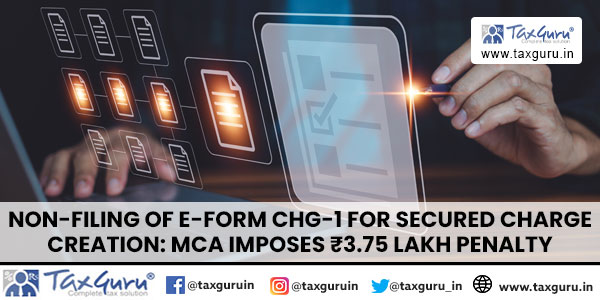Background:
The Ministry of Corporate Affairs (MCA) through its circular dated April 12, 2019, further amended Rule 16A of Companies (Acceptance of Deposits) Rules, 2014 (“Deposit Rules”) relating to one-time return for outstanding receipts not considered as deposits.
As per the amendment, every company (other than a government company) would need to file with the Registrar of Companies (“ROC”) a one-time return in Form DPT-3 for receipt of money/loan by a company, not considered as deposits, outstanding from April 1, 2014 to March 31, 2019. Previously, the requirement was to file a one-time return for the period April 1, 2014, till January 22, 2019.
Additionally, MCA has clarified that additional fees as applicable under the Companies (Registration Offices and Fees) Rules, 2014 would be levied after 30 days from the date the new form would be deployed on the MCA portal.
We have highlighted the gist of form DPT 3 in questions and answers format:
| Sr.
No |
Questions | Answers | ||||||
| 1. | What is the purpose of the notification? | MCA vide Notification dated January 22, 2019, amended Rule 16A of Companies (Acceptance of Deposits) Rules, 2014 mandating the filing of one-time return of outstanding receipt of loan/money. | ||||||
| 2. | What this notification amendment talks about? | (a) A one- time return which will give the details of the outstanding receipt of money or loan which have not been considered as deposits as per Rule 2(1)(c) of the Rules. For this, the period of such receipt of money or loan has to be considered from April 1, 2014, till March 31, 2019
(b) A periodic return which will give the details of particulars of transactions which are not considered as deposits as per Rule 2(1) (c) of the Rules within June 30 of every year containing details as on March 31. |
||||||
| 3. | Who all are required to file form DPT 3? | Every Company (whether Small, Dormant, Private, Public, OPC, etc.) other than Government Company, has to file Form DPT-3, a onetime return for the outstanding receipt of money or loan by a Company but not considered as deposits as on March 31, 2019. | ||||||
| 4. | What is the duration within which form DPT 3 (i.e. one-time return) need to be file? | Every such Company is required to file one-time return in Form DPT 3 within 90 days from 31 March 2019 (i.e. latest by June 28 2019), along with the applicable fee. | ||||||
| 5. | What is the purpose of filing the form DPT 3? | Form DPT-3 can be filed for the following purpose
Category (a) Onetime Return for disclosure of details of outstanding money or loan received by a company but not considered as deposits. (b) Return of Deposit (c) Particulars of transactions by a company not considered as a deposit (d) Return of Deposit and Particulars of transactions by a company not considered as a deposit |
||||||
| One Time Return Form DPT 3 | ||||||||
| 6. | What all details need to be inserted while filing up form DPT 3 for One Time Return? | Total amounts of outstanding money or loan received by a company but not considered as deposits in INR | ||||||
| 7. | Examples | (a) If the company has received Loan/Money/Advances/grant any time after June 01, 2014 and repaid before March 31, 2019, then also information is required to be shared?
Yes, if the loan is repaid then return in form DPT 3 is required to be filed as NIL. (b) If the company has received Loan/Money/Grant/Advances any time after April 01, 2014 and outstanding as on March 31, 2019, then also information is required to be shared? Yes, if the loan has been received after April 01, 2014 and not repaid as on March 31, 2019, then the return in form DPT 3 has to be filed. (c) If the company has outstanding Loan/Money on January 01, 2014 and continuing as on March 31, 2019, then also Information is required to be shared? Yes, if the loan has been received before April 01, 2014 and still not repaid as on March 31, 2019, then the return in form DPT 3 has to be filed. |
||||||
| 7. | If the Company doesn’t have any outstanding as on March 31, 2019, then also form DPT 3 need to be filed? | Yes, Company will have to file a “NIL” form DPT 3 before the RoC. | ||||||
| Particulars of transactions by a company not considered as deposit Form DPT 3 | ||||||||
| 8. | Which transactions by a Company not considered as a deposit? | This deals with the particulars of receipt of money or loan by a company but not considered as deposits (disaggregated information) as at the end of the financial year (for the annual return of deposits) as mentioned in Rule 2(1)(c) of Companies (Acceptance of Deposits) Rules, 2014 and few of them are extracted below:
The coverage of these transactions is quite general, as it is likely to cover many financial transactions including : (a) amounts received from governments, both Indian and foreign, including government bodies; (b) loans from banks and financial institutions; (c) advances from customers for goods, services and property, inter-corporate receipts; (d) proceeds from the issue of commercial paper, bonds and debentures; (e) share application money and (f) loans from directors. Therefore, it would practically require various financial transactions of the company to be aggregated into 13 categories and related sub-categories as prescribed under the Rule. |
||||||
| 9. | What all details need to be inserted while filing up form DPT 3 for transactions not considered as a deposit? | (i) Date of the last closing of accounts ;
(ii) Particulars of receipt of money or loan by a company but not considered as deposits Rule 2(1)(c) of Companies (Acceptance of Deposits) Rules, 2014, at the end of the financial year. |
||||||
| 10. | Whether DPT-3 required to be filed twice? | Yes, companies have to file e-Form DPT-3 twice:
(a) as an annual requirement only, as a return of a deposit of transactions not considered as deposits every year by June 30 and (b) also as a one-time return of outstanding money not considered deposits from April 1, 2014, to March 31, 2019 |
||||||
| 11. | Attachment of Auditor Certificate is mandatory while filing of Form DPT 3 before the RoC? | The e-Form DPT-3 requires companies to attach auditor’s certificate. Though not mandatory attachment, it is a good practice to attached Audit certificate while filing One Time form DPT 3 and for transactions not considered as a deposit. | ||||||
| 12. | What is the Penalty for non- Compliance? | Extracted part of penalty from Section 76A of the Companies Act, 2013 is reproduced below:
Provided that if it is proved that the officer of the company who is in default, has contravened such provisions knowingly or willfully with the intention to deceive the company or its shareholders or depositors or creditors or tax authorities, he shall be liable for action under Section 447. |
||||||
| 13. | MCA Circulars | Companies (Prospectus and Allotment of Securities) Amendment Rules, 2019
Companies (Acceptance of Deposits) Second Amendment Rules, 2019 |
||||||




























Dear SIr,
Should we need to report outstanding money from export of sale of Software(Debtors) for one time return of DTP 3 ? we are a private limited company.
Thanks in advance.
DOES A NIDHI COMPANY NEED TO FILE THE DPT 3 ?
As per my knowledge, NIL return is not required to file and Auditors Certificate is also not mandatory in case of one time Return-Form DPT-3. Whereas NIL return is required to file and Auditors Certificate is also mandatory in Annual DPT-3 Form.
NIL RETURN IS NOT REQUIRED TO BE FILED AT ALL, WHETHER ONE TIME OR ANNUAL. IT HAD BEEN MADE CLEAR IN WEBCAST OF MCA AND ICSI ALSO. FURTHER AUDITOR’S CERTIFICATE IS NOT REQUIRED TO BE ATTACHED FOR ONE TIME RETURN AND ANNUAL RETURN WHERE ONLY TRANSACTIONS NOT CONSIDERED AS DEPOSITS ARE TO BE REPORTED.
Nil return is not required to file. Only “outstanding receipt of money or loan” is required to be filed as per Rule 16A. If there is no outstanding amount on 31.03.2019 then no return required to be filed.
THE COY ACT 2013 SAYS FOR EXEMP COY GOVERNMEMT COMPNIES AND NBFC BUT THE CIRCULAT NOTIES ALL COMPANIES, HOW CAN A CICULAR OVER RIDE THE ACT